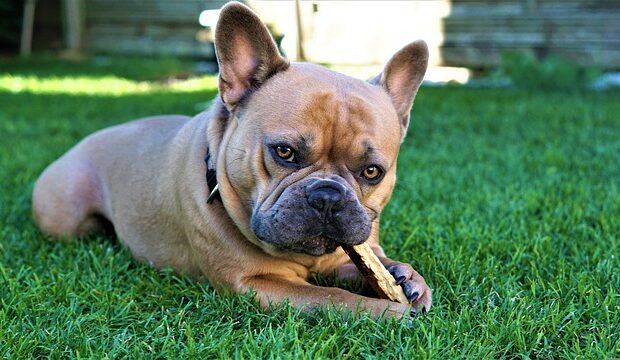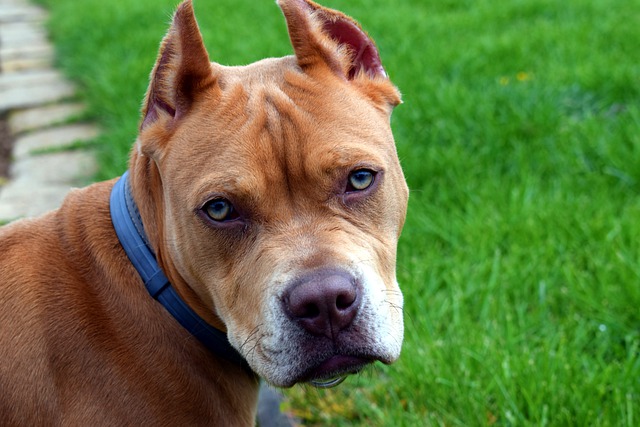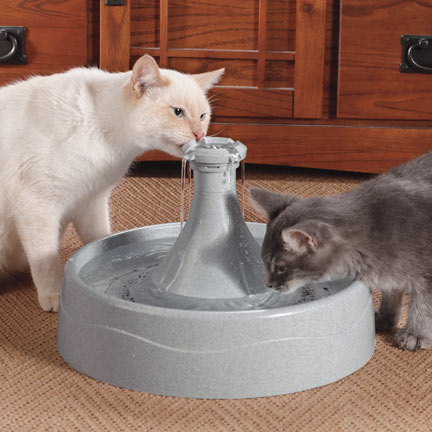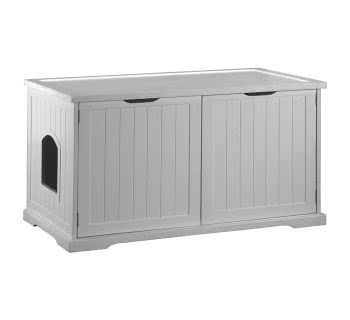When you have a pup at home, you might experience that stage where your pet keeps biting anything that comes its way – toys, clothes, shoes, papers, and more. Like human babies, pups go through the teething phase, during which time they feel the urge to chew something to ease the pain in their mouth. There are quite a few chew toys available in the market for pups to get through this stage without any hassles. However, traditionally, puppies have been given rawhides to chew on when they are teething to keep them pain-free and entertained.
As a pup owner, you might have many questions about giving rawhides to your pups. At what age can you give them rawhides? Are rawhides suitable for puppies? Do they pose any risks? Are there any other healthy alternatives to rawhides? In the following sections, we attempt to answer these for you so that after reading this article, you have absolutely no doubts about whether to give rawhides to your young dog or not.
Table of Contents
Is There an Age When I Can Start Feeding Rawhides to My Pup?
No, there is no direct answer to this question because age doesn't matter in this case. The only thing that matters is how well your pup can handle the rawhides that are being given to them. As long as they don't suffer from choking or any digestive disorders, you can continue to provide rawhides as treats to your pups. Some people with dog breeds prone to digestive and choking disorders don't give rawhides even to their adult dogs. On the other hand, owners of dog breeds that don't have these problems provide rawhides for their pups as small as 10 to 12 weeks old.
What Are Rawhides?
Though rawhide bones have been given as treats to pups since time immemorial, not many are aware of what they are. Rawhides are made from the inner layers of skin of cows, horses, and sometimes pigs. The hides of these skins go through different chemical treatments and processes to become rawhides. The skin is separated from the bones and is preserved using many chemicals and cleaning agents. These are allowed to dry before they are pressed into different attractive shapes and colors to entertain the pups.
The final product of rawhide bones differs from the skin hides they were manufactured from. The preservative and colorful agents in them may not be suitable for some dogs, which is why many owners ask, "Can I give rawhides to my pups?" Keep reading to know more about this.
What Are the Health Hazards Associated With Rawhides?
One of the most important things you should know about feeding rawhides to dogs is that these bones pose quite a few health risks for the canines. They are listed below:
Harmful Ingredients
The most significant health risk with rawhides is that they may be made up of potentially harmful ingredients for your pups. The cleaning agents, chemical components, preservatives, artificial colors, and bleaching products used for treating the hides of the animals may cause sensitive reactions or digestive problems for your pets. You have to check the brand and the area where the product is.
You must check the brand and the area where the product is made before getting rawhides as chew treats. Unbranded or unauthentic rawhides for pups could pose health risks for your puppies. They can also have some harmful bacteria, which can lead to health hazards in pets.
Choking Hazards
More often than not, dog owners don't give their pets rawhides because of choking hazards. Teething pups cannot control their excitement around rawhides, so they try to bite off a big piece of it instantly. However, they can be in serious trouble when this piece gets stuck in their esophagus or digestive channels for some months. If not treated in time, this can be fatal. The chunks of bones can also block the intestine or stomach of the dogs, making it very painful and uncomfortable for them. Your pup may need surgery to get rid of this blockage.
If you are planning to try out rawhides for your pups the first time, please give a small piece first, and observe how they react. It would be best if you never leave your puppy unattended when chewing on rawhides. Always supervise your canines to know how they respond to these rawhide bones. Also, try to manually get the rawhide bone away from your pup's mouth if it gets too small, as your puppy may try to swallow. If your dog always eats large chunks or pieces of everyday foods, giving him rawhides may not be a good idea, as he is likely to choke on the bones.
Please call the vet the minute you notice that your dog has swallowed even a tiny piece of rawhide. Even if you are doubtful about this fact, it is better to get your pup checked with an expert. Not detecting this in the early stages can cause your pup's stomach or intestine to swell up, and it might be too late to consult the vet.
Digestive Problems
The ingredients used in rawhides can cause problems in pups' digestive tract. If your puppy shows symptoms like nausea, fatigue, vomiting, diarrhea, and overall appetite loss, it means that it cannot handle rawhide. So, when you want to introduce branded and high-quality rawhides into your dog's diet, you should always start with a small piece and observe your pup's behavior and health for a couple of days before you start giving it another set of rawhides again. Since these should only be given as treats, you should never forget to feed rawhides in moderate quantities only.

Which Age Is Safe for Dogs to Eat Rawhides?
Until they are about 6 months old, pups have very brittle teeth. Since traditional rawhides are pretty hard to chew, they cannot be handled well by the delicate teeth of puppies. Even if your pups aren't prone to choking or digestive issues, vets don't recommend giving traditional rawhides as treats to them. Instead, you can opt for easily digestible rawhide treats available in the market. However, check thoroughly to ensure you buy only those manufactured by reputed brands/companies.
It is quite understandable that your pups can develop the urge to chew or bite into things during their teething phase. If you don't want your shoes, furniture, toys, and other household items to be damaged, it is considered a wise decision to invest in some high-quality rawhide treats. You can check these treats' ingredients to ensure they don't contain any artificial colors or preservatives.
How Often Can I Give Rawhide Treats to My Pups?
If your pup can handle rawhide treats well, you might be tempted to give them these daily. However, is it correct to feed your pup rawhides every day? Not really, according to experts! Though your pup may not show any instant reactions after eating rawhide treats, its continued exposure to chemicals and preservatives can cause quite a lot of damage in the long run.
The age of your pup, its breed, and its chewing style will help you decide on the frequency of feeding it rawhide treats. Big-sized dogs can chew off an entire rawhide bone within hours, whereas small-sized dogs or pups may take a long time to gnaw and chew the bones. So, we cannot say how many rawhides treats you can feed them in a day or a week.
However, we can definitely say that it is not advisable to give pups and dogs the traditional, dense rawhide treats available in pet stores. You can opt for the highly-digestible rawhide treats instead. A better option could be to avoid these rawhide bones altogether, and feed your pups rawhide jerkies, bully sticks, and other similar goodies. Whether you give them treats, jerkies, or anything else, please give them a minimal quantity only. These cannot and should not replace your dog's actual, wholesome diet.
With these health risks and other facts in mind, please be informed that you can feed rawhide treats to your pup only under the following conditions:
- If your dog has not shown any adverse or allergic reactions a day or two after eating rawhide treats the first time
- If you feed digestible rawhide treats (please refer to the label carefully before buying) instead of the traditional, dense rawhide bones
- If you can personally supervise your pup every single time it eats rawhides
- If you buy feed high-quality and the best brands of rawhides manufactured in the US, preferably
- If your puppy doesn't have any immunity-related problems or existing bacterial infections
As you can see from the above facts, please ensure that you feed your dogs only digestible rawhide treats manufactured by reputed companies to prevent choking hazards, digestive complications, and other health issues in your pups. Always feed a tiny quantity of rawhide treats first to see if your pup's body can handle it well. Though they help your puppy reduce the pain and discomfort caused during the teething phase, rawhide treats also come with many health risks. So, replacing them with chews, sticks, and jerkies that are free from rawhides would be a good idea.
About the Author
Kirsten Heggarty
Kirsten created The Pet Handbook with the aim of sharing her knowledge about pets, pet food, healthy habits, and more. All of her advice is based on years of her own experience with her pets, and feedback that she has received from grateful readers about her tips. If you want to know more please read the About Me page.









